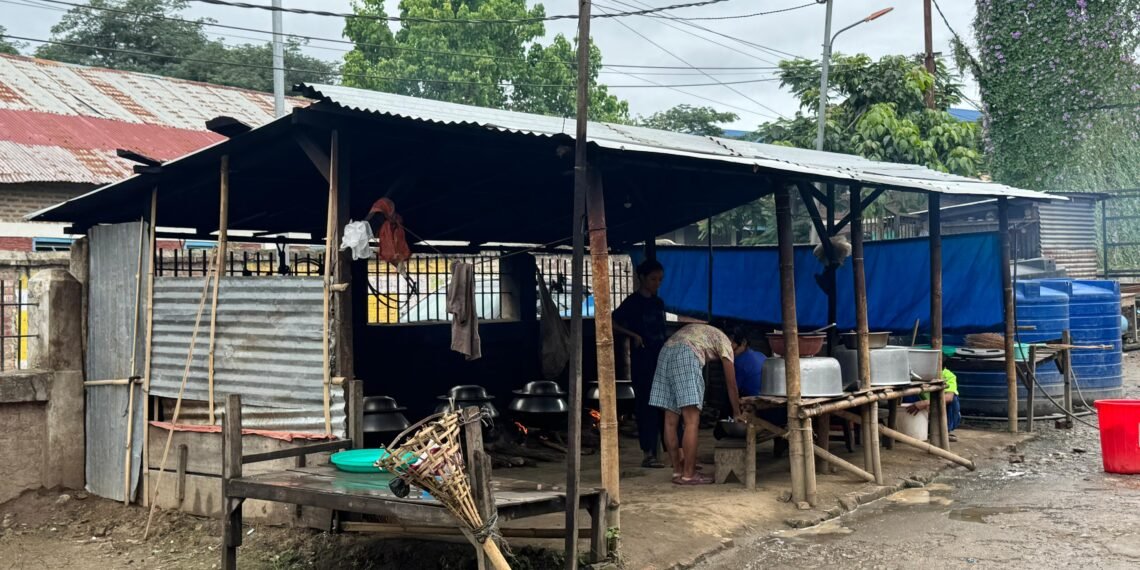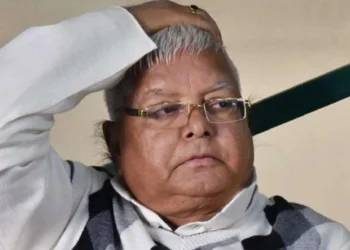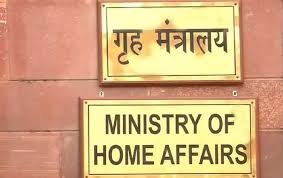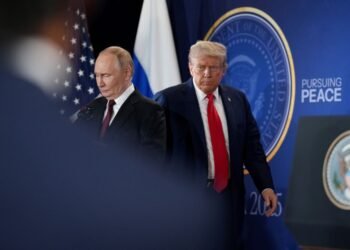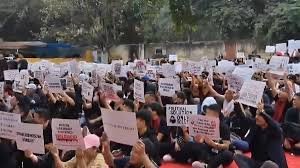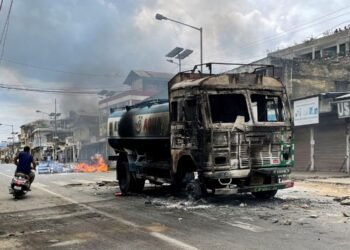Editor’s Note: As part of our commitment to also serve as an advocacy platform for peace in Manipur, we continue to welcome “opinion” articles from all communities. We encourage individuals to use this space to express their perspectives with sincerity and responsibility. We urge contributors to refrain from language that could be interpreted as inciting violence or hatred. In line with this initiative, we present a write-up by Dr. Dr. Chinkholal Thangsing, about the pathetic condition of IDPs and urgent need for help. Please mail your write-up at: novinkn@gmail.com. Thank you, Navin Upadhyay
“From untreated fevers to paralyzed patients left without aid, the condition of Manipur’s displaced is a humanitarian emergency. The time to act is not tomorrow. It’s now:”
By Dr. Chinkholal Thangsing, MBBS, PGDip, FCAMS
Churachandpur – Two years have passed since the horrific events of May 3, 2023, when ethnic violence erupted across Manipur, targeting the Kuki-Zo people in what many now recognize as a campaign of ethnic cleansing. What was once hoped to be a short-lived conflict has transformed into a protracted humanitarian disaster.
In the town of Lamka, Churachandpur, over 25,557 people were displaced from their homes. Today, 15,512 of them remain confined in deteriorating relief camps—cut off from basic services, and most critically, from healthcare.
During personal visits to several of these camps, I witnessed scenes that would haunt any conscience: a child burning with untreated fever; a paralyzed woman unable to fend off flies from her festering bedsores; and scores of people crawling on the floor for lack of crutches or wheelchairs.
When these conditions were brought to the attention of the District Deputy Commissioner, we were told that the Chief Medical Officer (CMO) was responsible. Yet, no medical teams had visited the camps. The result is a near-total collapse of health services at a time of urgent and widespread need.
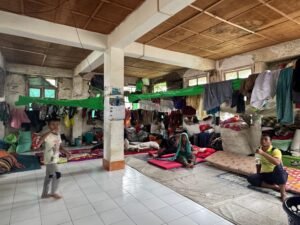
A Health Crisis Unfolding
Conditions inside the camps are deplorable. Makeshift shelters offer little protection from the elements. Clean water, sanitation, and privacy are severely lacking. These are not merely inconveniences—they are breeding grounds for disease and despair.
The healthcare situation is now spiraling into a full-blown emergency:
- Communicable diseases such as respiratory infections, skin diseases, and gastrointestinal illnesses are rampant.
- Waterborne illnesses like diarrhea, cholera, and typhoid are spreading due to contaminated water sources.
- Nutritional deficiencies are weakening immune systems, especially among children, pregnant women, and the elderly.
- Chronic conditions—including diabetes, hypertension, asthma—are going untreated, endangering thousands.
- Cancer patients and those in need of palliative care or dialysis have been abandoned to deteriorate in silence.
- The mental health crisis is immense: depression, anxiety, and post-traumatic stress disorder (PTSD) are widespread, but there are no professional services available to help those suffering.
This is not a case of occasional hardship—it is a consistent and systemic denial of care. People are dying from preventable conditions.
READ: Time for Delhi to Act: Union Territory only Option for Kukis
The Deafening Absence of Aid
In crises such as these, we expect national NGOs, humanitarian groups, and community-based organizations (CBOs) to lead with urgency. But here in Lamka, their absence is deafening.
Where are the mobile clinics? The mental health counselors? The vaccination campaigns? The health awareness drives?
Local churches, youth volunteers, and faith-based organizations have stepped in where they can—but their resources are extremely limited. While their dedication is commendable, they cannot substitute for a structured healthcare response.
This is not only a logistical failure—it is a moral and institutional collapse.
The situation in Lamka is no longer just a health concern. It is a public health emergency, born of displacement and deepened by neglect. The suffering of thousands is not temporary—it is being prolonged by inaction.
READ: Mizoram to Launch Myanmar Refugee Portal After Shah’s Nod
We urgently call on:
- NGOs and humanitarian agencies: Deploy mobile health teams, stock essential medicines, and send mental health professionals immediately.
- Medical colleges, universities, and professional associations: Organize outreach camps and volunteer rotations.
- Government bodies at state and national levels: Declare this a public health crisis and mobilize resources accordingly.
- Medical professionals and donors: Contribute time, medicine, and expertise.
The following items are urgently needed:
- Medicines, multivitamins, nutritional supplements
- Medical supplies: wound dressings, antiseptics, thermometers, BP monitors
- Mobility aids: wheelchairs, crutches, walking sticks
- Basic diagnostics: blood sugar monitors, pregnancy kits, rapid tests
- Hygiene products: sanitary pads, adult diapers, soap
- Mental health support: trauma counseling, safe spaces for women and children
- Regular medical visits and nursing care, including dressing of wounds and palliative care
- Screening and treatment for communicable diseases
The Right to Health Is a Human Right
The Kuki Zo people have already endured the loss of homes, livelihoods, and loved ones. To now be deprived of life-saving medical care is an injustice beyond comprehension.
 READ: L’Affair Tej Pratap Yadav: Love, Loyalty, or Sibling Rivalry?
READ: L’Affair Tej Pratap Yadav: Love, Loyalty, or Sibling Rivalry?
This cannot be our legacy as a society.
We must act—not tomorrow, not next month, but now. Silence is no longer neutrality. It is complicity.
Let us rise to restore dignity, health, and humanity to those who have already lost so much.
Let the IDPs at Lamka, Churachandpur District become not a forgotten corner of conflict, but a beacon of compassion, resilience, and hope.
For media inquiries, donations, or to volunteer, contact:
Dr. Chinkholal Thangsing is President, Churachandpur – City of Hope
Email: lamka.cityofhope@gmail.com



